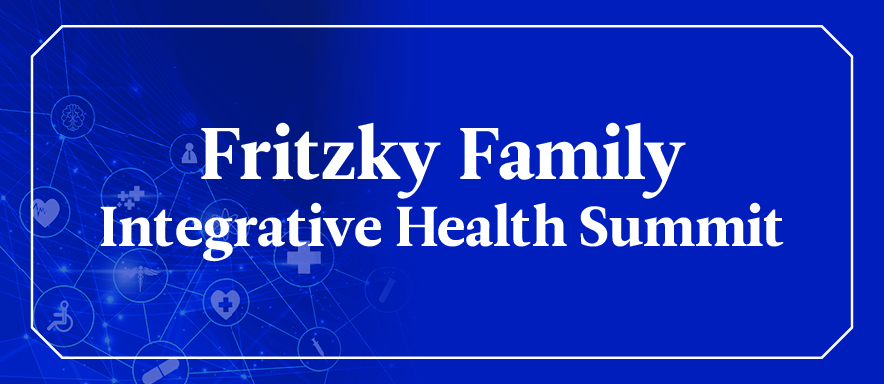
Duquesne University recently hosted its first Integrative Health Summit (Sept 22 – 24). Co-hosted by Duquesne University’s proposed College of Osteopathic Medicine and the Center for Integrative Health, this multi-disciplinary Summit had the goal of connecting healthcare practitioners and professionals who are dedicated to improving patient care and defining the future of integrative health. The key topics that were covered were: health equity, transformative models of care, healthy aging, obesity, and women’s healthcare. The Allegheny County Medical Society was thrilled to support the Summit and we look forward to partnering with leaders at Duquesne University to get more of our physician members involved next year.
Integrative health aims for well-coordinated care among different providers and institutions by bringing conventional and complementary approaches together to care for the whole person.
– National Center for Complementary and Integrative Health
Highlights from the Integrative Health Summit
This event spanned three days. Thursday evening was a conference kickoff dinner and keynote address from Vonda Wright, MD, MS, an Orthopedic Surgeon, who spoke on “Re-thinking what it means to live long and prosper”. According to Dr. Wright, “there is a myth in this country that aging is an inevitable decline from Vitality to Frailty. It’s not true. We can live healthy, active, and joyful lives until our very last days… If we choose to.”




The next two days were full of learning. Friday morning’s sessions were focused on health equity. This included presentations on local programming to help combat racial and ethnic disparities in cardiovascular disease and diabetes, as well as a session on developing trauma resistant communities. The attendees also heard a presentation from Noah Potvin, PhD, LPC, MT-BC and Rebecca Kronk, PhD, MSN, CRNP, FAAN, CNE, who spoke about music therapy and the impact it can have on Palliative Care.
The afternoon was centered around healthy aging and obesity management. Presentations included an invigorating session from Johnny Huard, PhD. Dr. Johnny Huard is the Chief Scientific Officer and Director of Linda & Mitch Hart Center for Regenerative & Personalized
Medicine at Steadman Philippon Research Institute (SPRI) in Vail,
Colorado. Dr. Huard possesses extensive knowledge in the areas of gene therapy, tissue engineering, and regenerative medicine applications based on the use of muscle-derived stem/progenitor cells (MDSCs).
We also heard from Nicholas Pennings, DO, FOMA about obesity management and the importance of integrating obesity medicine into clinical education. Christopher Still, DO, FACP, FTOS closed out Thursday’s general sessions with a presentation about implementing practical therapies into clinical practice, as it pertains to the medical and surgical treatment of obesity.
And finally, leaders from Duquesne University gathered on stage for a fireside chat about creating a future of integrated clinicians. Duquesne University’s proposed medical college is slated to open in the fall of 2024, and has recently received “Candidate Status” from the Commission on Osteopathic College Accreditation (COCA). The medical school will position the University as a national leader in medical education, training the next generation of primary care physicians, while building on its long tradition of serving people on the margins.

The conference wrapped up on Saturday with sessions around healthy aging and obesity prevention, with an intentional focus on application and implementation. Closing out the day, and the Summit, were several presentations about the holistic and integrative approaches to women’s healthcare.
The full agenda from the summit can be found here.
Why should you attend next year?
The Duquesne University Center for Integrative Health is committed to improving the health and wellness of their campus and neighboring communities through interdisciplinary practice, teaching and research. This conference was just a precursor to all of the opportunities that the new proposed school of medicine will bring to Pittsburgh.
Attendees at this conference spanned many disciplines. There were pharmacists, nurses, PAs and RNPs, physicians, financial experts, community leaders, and more. It provided a great opportunity for various groups to gather in one space to enhance the conversation around supporting the community from an integrative health approach.
While finalizing this blog post, I came across the promotional video for the Center for Integrative Health. It truly embodies the work that Duquesne University is doing and the ACMS is excited to be supportive of this exciting new chapter for our region.
To learn more about the proposed Duquesne University College of Osteopathic Medicine please visit their website. And be sure to keep an eye on your emails for information about next year’s Integrative Health Summit.

